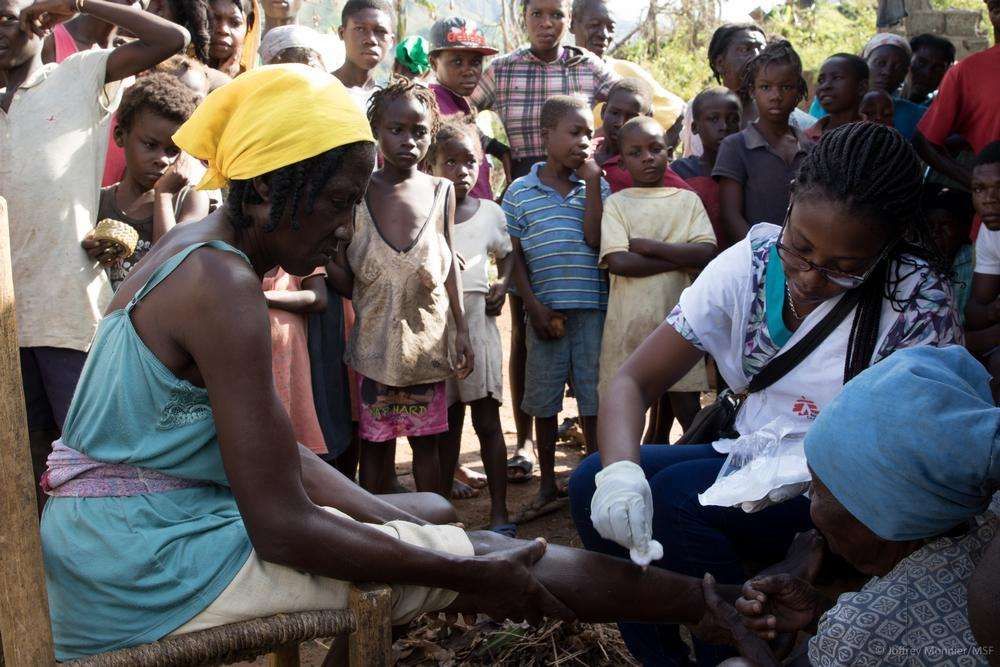MSF Access Campaign
In response to the need for better treatments, vaccines, and diagnostic tests, MSF set up its Access Campaign in 1999 to improve care for patients.
The aims of MSF's Access Campaign are to:
-
push for price cuts to medicines, vaccines, and diagnostic tests by stimulating the production of more affordable generic products.
-
act as a watchdog to ensure that the corporate interests don’t win out over public health needs.
-
steer the direction of medical research toward urgently needed new drugs, vaccines, and tests that don’t exist yet or are not tailored to the needs of people in developing countries.
-
scope out, support, and monitor new models to fund medical research that respond to medical rather than corporate needs, and do not rely on charging sky high prices for the final product to pay for the research.
This is an excerpt from MSF's 2014 Annual Report.
In 2014, MSF's Access Campaign pushed for lower prices and improved thermostability of vaccines; advocated for better diagnosis and treatment of DR-TB; pushed back against aspects of the Trans-Pacific Partnership trade agreement that would impose stricter intellectual property measures than international trade rules require, thereby limiting access to affordable generic medicines in many countries where MSF works; urged countries and companies to ensure affordable access to life saving hepatitis C drugs; and both challenged the makeup of, and worked on alternatives to, profit-minded research and development.
Drugs for Neglected Diseases initiative (DNDi)
In 2003, MSF joined forces with six other organizations around the world to establish the Drugs For Neglected Diseases Initiative (DNDi), with the aim of developing new drugs or new formulations of existing drugs for patients suffering from the most neglected communicable diseases.
DNDi seeks to address unmet needs by taking on projects that others are unable or unwilling to pursue.
This is an excerpt from MSF's 2014 Annual Report.
In 2014, DNDi launched a clinical study in Ethiopia for visceral leishmaniasis patients co-infected with HIV, presented key findings about the safety of artesunate-mefloquine for children with malaria, and received significant private and public funding to develop new treatments for onchocerciasis (river blindness) and lymphatic filariasis (elephantiasis). DNDi also joined MSF in urging reform of the Food and Drug Administration (FDA) priority review mechanism to better meet patient needs, following the $125 million sale of a voucher for an important visceral leishmaniasis treatment.
MSF Field Research
MSF is well known for its humanitarian medical work, but it has also produced important research based on its field experience with vulnerable populations.
This website archives MSF's scientific articles and makes them available free, with full text, and in an easily searchable format. MSF Field Research website.
Increased research
MSF is also pushing for increased research into neglected diseases—such as tuberculosis, malaria, sleeping sickness, and leishmaniasis—through increased funding, investing in research and development (R&D) capability in developing countries, and supporting alternative models for R&D.
Abandoned drugs
Some treatments are no longer produced. MSF is calling on companies and governments to find solutions to bring unprofitable but medically necessary drugs back into production.
Safeguards
MSF is also supporting developing countries in codifying into law the "safeguards" that are allowed under international trade rules in order to protect access to medicines.





